#andrean sigurgeirsson
Text
Just leaving this here.
#did i even add it properly?#you'd think I'd have learned this site by now#anyhow#bashar murad#vestrið villt#wild west#andrean sigurgeirsson#you can never have too much Andrean#not eurovision
2 notes
·
View notes
Video
youtube
Hatari - Ódýr (Live - Reykjavík 23 May 2019)
#wish there was a better recording#Andrean with the feather fans was damn iconic#hatari#klemens hannigan#matthias haraldsson#einar stefánsson#andrean sigurgeirsson
6 notes
·
View notes
Text
Hatari at Húrra, Reykjavík
30/10/2021
Klámstrákur
credit: me
67 notes
·
View notes
Photo
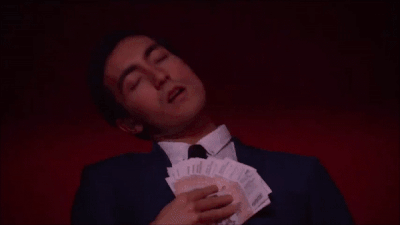
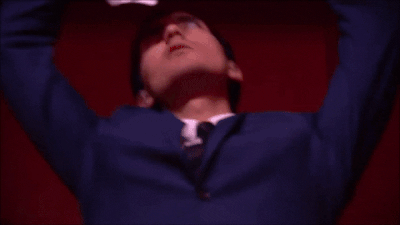
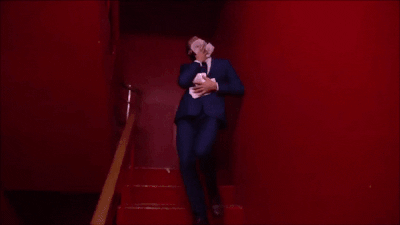

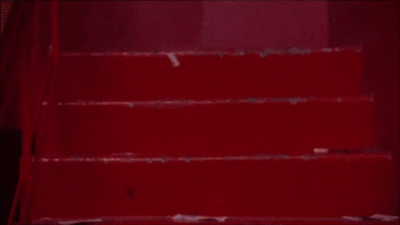

Hatari at Iceland Airwaves 2020
82 notes
·
View notes
Photo


Sigurður Andrean (Andrean Sigurgeirsson)
Gender: Male
Sexuality: Gay
DOB: 17 November 1991
Ethnicity: Icelandic, Indonesian
Occupation: Dancer, drag artist, activist, model
Note: Represented Iceland at Eurovision 2019 as part of Hatari
#Sigurður Andrean#Sigurour Andrean#Andrean Sigurgeirsson#lgbt#lgbtq#male#gay#1991#biracial#asian#poc#Indonesian#Icelandic#dancer#drag artist#activist#model#eurovision#popular#popular post
168 notes
·
View notes
Photo







#when your favourite cereal is on sale
Andrean Sigurgeirsson in ENGIN MISKUNN
1K notes
·
View notes
Video
youtube
Fuck it, I’ve made it available publicly now. Hopefully it should be easier to make gifs :3
Enjoy!
#please reblog#hatari#iceland airwaves#iceland airwaves festival#hatari videos#hatari live#einar stefánsson#einar stefansson#klemens hannigan#matthías haraldsson#matthias haraldsson#andrean sigurgeirsson#ástrós guðjónsdóttir#sólbjört sigurðardóttir
48 notes
·
View notes
Text
me at the grocery store to buy my favorite cereal:

when they have my favorite cereal:

#hatari#andrean sigurgeirsson#engin miskunn#hatari clown squad#my posts#gifs#EXCUSE ME BUT THIS IS TOTALLY ME#over dramatic and everything#my stuff
355 notes
·
View notes
Text
Dancer interview on A Song Called Hate - translation
This interview in Fréttablaðið, published the day after the premiere of A Song Called Hate (but taken before it), features Andrean, Sólbjört and Ástrós discussing the film, their experiences in Israel and Palestine, the stress of the spotlight, and their passion for human rights.
A difficult reckoning after Eurovision
Andrean Sigurgeirsson, Ástrós Guðjónsdóttir and Sólbjört Sigurðardóttir, the dancers of the band Hatari, say the premiere of the documentary *A Song Called Hate*, which was shown at Reykjavík International Film Festival last night, brings mixed feelings. The film is about Hatari's participation in Eurovision 2019 and the controversial placement of the contest.
As the nation knows, Hatari went to Tel Aviv on Iceland's behalf last year and caused a kerfuffle by holding up banners with the colors of the Palestinian flag on the live broadcast on the night of the finals. "I still avoid thinking about the final night and the feelings I was experiencing," says Sólbjört, who believes she had a nervous breakdown that night.
"It was really hard being out there and I was afraid I'd never see my child again and couldn't get home." The experience of irrational anxious thoughts was synonymous with the stay in Israel. "That's why it's been uncomfortable to think about."
Processing the experience
The dancers are all still processing the experience of the trip. "I realized later that I'd disconnected from my emotions just to get through what we were doing."
Andrean agrees and says he's still taking in this test of endurance. "I think there's a certain group of people that only see the glamour shots and don't know how difficult this has been for us, both emotionally and professionally as artists."
Ástrós is the only one who has seen the documentary from beginning to end, but the others say they haven't been able to bring themselves to watch it yet. "I've only seen a fraction of it and it tore open all these difficult feelings," says Sólbjört, who preferred to be surprised by it in the arms of friends and family.
"It was uncomfortable looking back. There's still so much you're processing and have been avoiding thinking about for some time," Ástrós muses. She says it was strange to experience these things again from the outside. "But it also gives you a good distance from what happened."
All eyes on them
When it was clear that Hatari would go to Israel, the artistic team became the center of the media and public discourse in Iceland in one fell swoop. "It happened so fast, all eyes were on us and you got scared of making some misstep," Andrean admits.
Everyone had an opinion on the act, and friends, acquaintances and strangers were divided, for or against, participation or boycott. Andrean thinks people don't necessarily realize how difficult it is to be the target of so many opinions. "You just get so confused and want to listen to everyone and please everyone, but still trust your own beliefs and sense of justice."
Wanted to fight this battle
Sólbjört and Andrean both went out with the aim of unveiling the whitewashed image that Israel had drawn up of the contest. "You decide to fight this battle, and then you become aware of how your friends and loved ones also have opinions, which don't necessarily rhyme with your own," says Andrean. Even within the group there were arguments about the best way to support Palestine. "We wanted the cause to be in the foreground, and there were endless back-and-forths about what would be the best way to do that," Sólbjört adds.
"Most of us really wanted to see it up on stage, but of course that never would've been seen because of the playback [delay], so we decided to act when we were live for real," says Andrean. They did the best they could in the situation. "We waited and waited for the camera to be on us and then finally we got that chance towards the end of the televote points."
Sólbjört says she was terrified that night, and in fact for the entire trip. Nonetheless, she never doubted fighting for the cause, even if sometimes her emotions took over.
Privilege blindness gone
Ástrós had a somewhat different experience from the other dancers. "I'd been to Israel before, and didn't originally go for the cause, but for the trip and getting to work with them." But once they were out there, her purpose changed, after the team traveled around Palestine.
"When we visited the refugee camp in Bethlehem, there was some transformation within me." People told stories of their lives, and it made Ástrós think. "I couldn't help thinking about the injustice of these women having to give birth in dirty alleys, while we have all this privilege back home."
As the youngest member of the group, Ástrós had never had to face her privilege before. "It really cut me deep how unfair it was that I'd been born into this white privilege and had never even had to think about human rights as a question." When she looks back, the feelings come flooding back. "Number one, two and three, I just re-experience how unjust the situation is out there," she says, visibly emotional.
Forced people to see
But it wasn't only Ástrós who learned from this experience; the whole group experienced the importance of foregrounding the Palestinian struggle in the contest. "That was the reason we participated in Eurovision and the reason we made this movie," says Sólbjört.
Andrean agrees. "I've always been an activist at heart and fight passionately for human rights to be respected and human dignity to be upheld."
Despite a blend of good, bad and horrible days, the three of them don't regret taking part. "It forced people to see what was being hidden, and that's why it was worth it," says Ástrós.
It raised awareness and pushed people to take a stance on an issue that would otherwise have been easy to ignore. "It also got various activist organizations to consider if this is a good way to create a conversation about big issues." Andrean feels art is often underestimated on that stage. "Art gets people to think outside the box, and I think the union of activism and art worked out well in this context."
Sent the singers to their rooms
The dancers also hope it's clear that all of the group's decisions were taken as a group. Even though the band was the face of the team, all voices were heard. "People varied in how radical their ideas were," says Andrean, who fought strongly for the waving of the banners.
"I really remember how I'd stuck the flags under my underwear and in my socks and I thought everyone had." That turned out not to be the case and Andrean had to send the singers back to their rooms to get their banners. "It was kind of a circus at times."
The constant presence of the camera also disrupted things to some extent. "We could never be alone, we were constantly being watched," says Ástrós. As a result, sometimes they had to repress their emotions. "The focus was on supporting the fight for human rights and showing what it was like, more than taking care of our mental health and our soul as a group."
The fight is not over
Personal conflicts within and without the group are not the main subject of the documentary. "I think people will be surprised that it's not just about us and the drama around Eurovision, but a much bigger and wider-scope problem," says Sólbjört. The film is largely about the oppression that comes with daily life in Palestine. "What I learned from this, and hope others see too, is that human rights matter for everyone, always, and it's not justifiable to look the other way," says Ástrós firmly.
The premiere of the film marks a certain reckoning with this time, among the dancers and the others on the team. "We're still in contact with Palestinian artists who plan to come to Iceland when the situation allows, so perhaps this is the end of one chapter and the beginning of another."
Hatari's act didn't stop the bombing of Gaza or the illegal settlements in Palestine, but opened the door for conversations and collaboration. "Even though this act is at an end, human rights are still being trampled in Palestine and we hope people continue to be aware of it and take a stand." The fight isn't over. "We just hope the film continues to draw attention to it."
#hatari#a song called hate#andrean sigurgeirsson#sólbjört sigurðardóttir#ástrós guðjónsdóttir#interview#translation#politics
26 notes
·
View notes
Photo




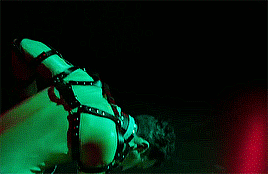

andrean appreciation post
#hatari#hatariedit#sigurður andrean#andrean sigurgeirsson#myedit#flashing gif#appreciate him#love you king#forget everybody else i respect you
124 notes
·
View notes
Photo



Hatari outfits
#eurovision#esc#hatari#hatrið mun sigra#esc 2019#matthías haraldsson#einar stefánsson#sólbjört sigurðardóttir#ástrós guðjónsdóttir#klemens hannigan#andrean sigurgeirsson#please please let them win#the jury show is tonight and im so worried omg
3K notes
·
View notes
Text
Yes please!!

9 notes
·
View notes
Text





#hatari#klemens hannigan#matthías haraldsson#einar steffanson#andrean sigurgeirsson#ástrós guðjónsdóttir#trashyclothing
108 notes
·
View notes
Text
Me and the boys leaving the goth club at 3:37am to go to the 24hr chippy down the street

#hatari#clown squad#matthias haraldsson#Matthías Haraldsson#einar steffanson#Klemens Hannigan#andrean sigurgeirsson
92 notes
·
View notes
Text


THE POWER
80 notes
·
View notes
Text




80 notes
·
View notes